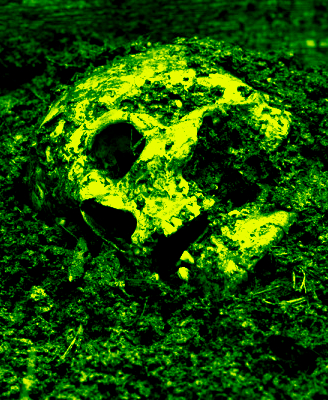Police and professors get keen for corpses
 Australia’s first body farm may be one of the least appealing locations for many, but researchers say it will be a dream to have so many corpses in one backyard.
Australia’s first body farm may be one of the least appealing locations for many, but researchers say it will be a dream to have so many corpses in one backyard.
Australian universities and government groups have come together for a new project that will revolutionise forensic science in Australia.
The project, funded through the Australian Research Council Linkage Infrastructure, Equipment and Facilities (LIEF) scheme and led by Professor Shari Forbes from the University of Technology Sydney (UTS), focuses on the science behind the decomposition of human remains.
Forensic experts have received the go-ahead to establish the first outdoor forensic human decomposition research facility in Australia.
Essentially, it will be a whole bunch of human corpses in various states and environments left to do what they do naturally, under close observation.
The multidisciplinary facility for experimental research is the first of its kind outside of the United States.
Forensic Criminologist Dr Xanthé Mallett says the research will involve studying the decomposition of human cadavers in order to improve scientists’ understanding of factors that are essential to interpreting scenes of death.
“We will be able to study important factors such as the effect of temperature and humidity on human decomposition rates, and the impacts of entomological (insects) activity,” Dr Mallett said.
“The aim is to help police with missing persons and homicide investigations.”
As a project leader for the University of New England (UNE), Dr Mallett will also be undertaking forensic research at the site, focusing on what happens to human tissue post-mortem, under various conditions.
“All aspects of death scene analysis will be analysed at the facility, from the time of death to the time of discovery, as well as training in clandestine grave site and body recovery”, says Dr Mallett.
“This is our chance to make a huge difference to our understanding of human decomposition under Australian conditions.”
The facility is to be established on the outskirts of Sydney, and will be the first in the Southern Hemisphere to use donated human cadavers to study the processes of decomposition.
The research will be conducted in collaboration with police and forensic services, ensuring data generated at the facility is applicable to human death investigations.
The facility has council approval, and has been awarded a $430,000 LIEF grant by the Australian Research Council. This grant will support the establishment of the facility early 2014, on land owned by UTS.
In addition to UTS and UNE, research partners include the Australian Nuclear Science and Technology Organisation, the Victorian Institute of Forensic Medicine, the University of Wollongong, the University of Sydney, the University of Canberra, the Australian National University, the Australian Federal Police, Victoria Police and the NSW Police Department.








 Print
Print